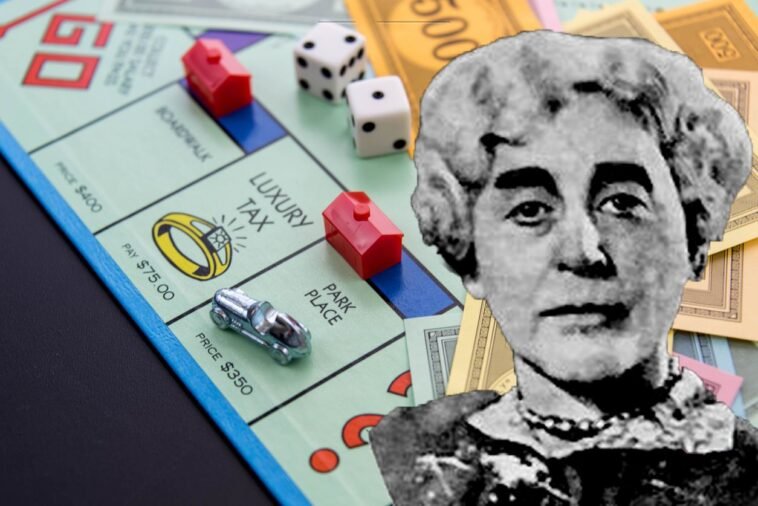
History often feels like a game of telephone—details get lost, voices fade, and some stories are rewritten entirely.
For centuries, women’s contributions to science, tech, and innovation were dismissed, stolen, or labeled “unimportant.”
But was this ignorance, or intentional erasure?
This isn’t just about fairness—it’s about how systemic exclusion brainwashes us into believing only certain people (read: men) drive progress.
Yet today, reclaiming these stories acts as a form of collective self-help, repairing gaps in our shared knowledge.
Let’s meet six women whose genius was nearly erased—and explore why their legacies matter now.
Notable Female Inventors and Their Inventions
Throughout history, many women have made incredible contributions to science and innovation—often without getting the credit they deserved.
Here are some inspiring examples:
Elizabeth Magie
Elizabeth Magie invented “The Landlord’s Game” in the early 1900s to teach people about the dangers of income inequality and corporate monopolies.
The game was meant to show how wealth can concentrate in the hands of a few, while others struggle.
Her original idea focused on economic justice and offered two versions—one rewarding players for working together, and one based on ruthless competition.
Years later, her game inspired the creation of Monopoly, which became a worldwide bestseller.
However, Elizabeth received little credit or compensation.
While Monopoly became a household name, few people know it was built on her vision for social reform.
- Read also: 6 Black Women Inventors Who Changed the World
- Read also: Legendary Women: 5 Famous Women of the Middle Ages
Vera Rubin

Vera Rubin was an astronomer whose work changed our understanding of the universe.
In the 1970s, she provided strong evidence for the existence of dark matter, a mysterious substance that doesn’t emit light but makes up most of the universe’s mass.
Her observations showed that galaxies rotated in a way that couldn’t be explained by visible matter alone.
Despite her monumental discovery, Vera was never awarded a Nobel Prize, though many believed she deserved it.
Her story reflects a broader pattern in science, where women’s contributions are often overlooked.
Today, her work is recognized as foundational to modern astrophysics.
Margaret Knight
Margaret Knight was a talented inventor in the 19th century.
She created the square-bottom paper bag, which completely transformed how we carry groceries and other goods.
Before her design, bags were flimsy and couldn’t stand upright.
Her invention made them stronger, more useful, and widely adopted.
When she applied for a patent, a man tried to steal her idea and claimed it as his own.
Margaret took him to court and proved that the invention was hers by showing her detailed designs and prototypes.
She won the case, but her experience highlighted how female inventors often had to fight just to be taken seriously.
Ada Lovelace
In the 1800s, Ada Lovelace worked with mathematician Charles Babbage on his design for an early mechanical computer.
While Babbage built the hardware concept, Ada wrote the first-ever algorithm intended for a machine to process.
This made her the world’s first computer programmer—long before computers even existed.
At the time, few understood the importance of her work, and she was largely forgotten after her death.
It wasn’t until the 20th century that her contributions were fully recognized.
Today, Ada is celebrated as a pioneer who laid the groundwork for the digital age.
Marion Donovan
Marion Donovan was a mother and inventor who wanted a better solution for diaper leaks.
In the 1940s, she created the first reusable, waterproof diaper cover, which kept babies dry without the mess.
She used shower curtain fabric to test her early designs and eventually created a snap-on version that was far more practical than the cloth diapers of the time.
Katherine Johnson

Katherine Johnson was a brilliant mathematician who worked at NASA during the space race.
She was known as a “human computer” for her ability to solve complex equations by hand.
Her calculations were essential for some of NASA’s most critical missions, including John Glenn’s orbital flight and the Apollo 11 moon landing.
Despite her key role, Katherine worked in the background for most of her career.
As a Black woman in a segregated workplace, she faced both racial and gender barriers.
Her contributions were largely unrecognized until decades later, but her story came to light through books and films like Hidden Figures.
Today, she is honored as one of NASA’s most important pioneers.
The Impact of Erasure: Why It’s More Than Just Unfair
When we overlook or erase women’s contributions to science, technology, and innovation, we lose much more than just names in a history book.
Here’s why that matters:
We discourage future innovators
When girls don’t see women represented in science, engineering, or tech, they may start to believe that those fields aren’t meant for them.
Without visible role models, many talented young people may never explore their full potential.
We rewrite history in a biased way
If we only tell stories of male inventors and scientists, we create the false impression that progress happens in isolation or that men made all the breakthroughs.
In reality, innovation is often a team effort, and many women have played key roles—whether history remembers them or not.
We delay important solutions
Take Marion Donovan’s invention of the leak-proof diaper.
Even though she solved a real problem for parents, her idea wasn’t widely accepted for over 30 years.
That kind of delay isn’t just frustrating—it means families went without a better solution for decades.
And it makes you wonder: How many other life-changing ideas have been ignored or dismissed simply because they came from women?

- Read also: From Artists to Rulers: 8 Famous Renaissance Women
- Read also: Women in History: 8 Most Influential Women in the Age of Empire
Conclusion
Innovation has never belonged to just one gender—it’s the result of many minds working across generations.
When we erase women’s contributions, we not only do them an injustice, we rob the world of inspiration, progress, and truth.
By telling the full story, we empower the next wave of inventors, scientists, and thinkers—regardless of gender—to dream big and know they belong.
True progress begins when everyone’s voice is seen, heard, and valued.



